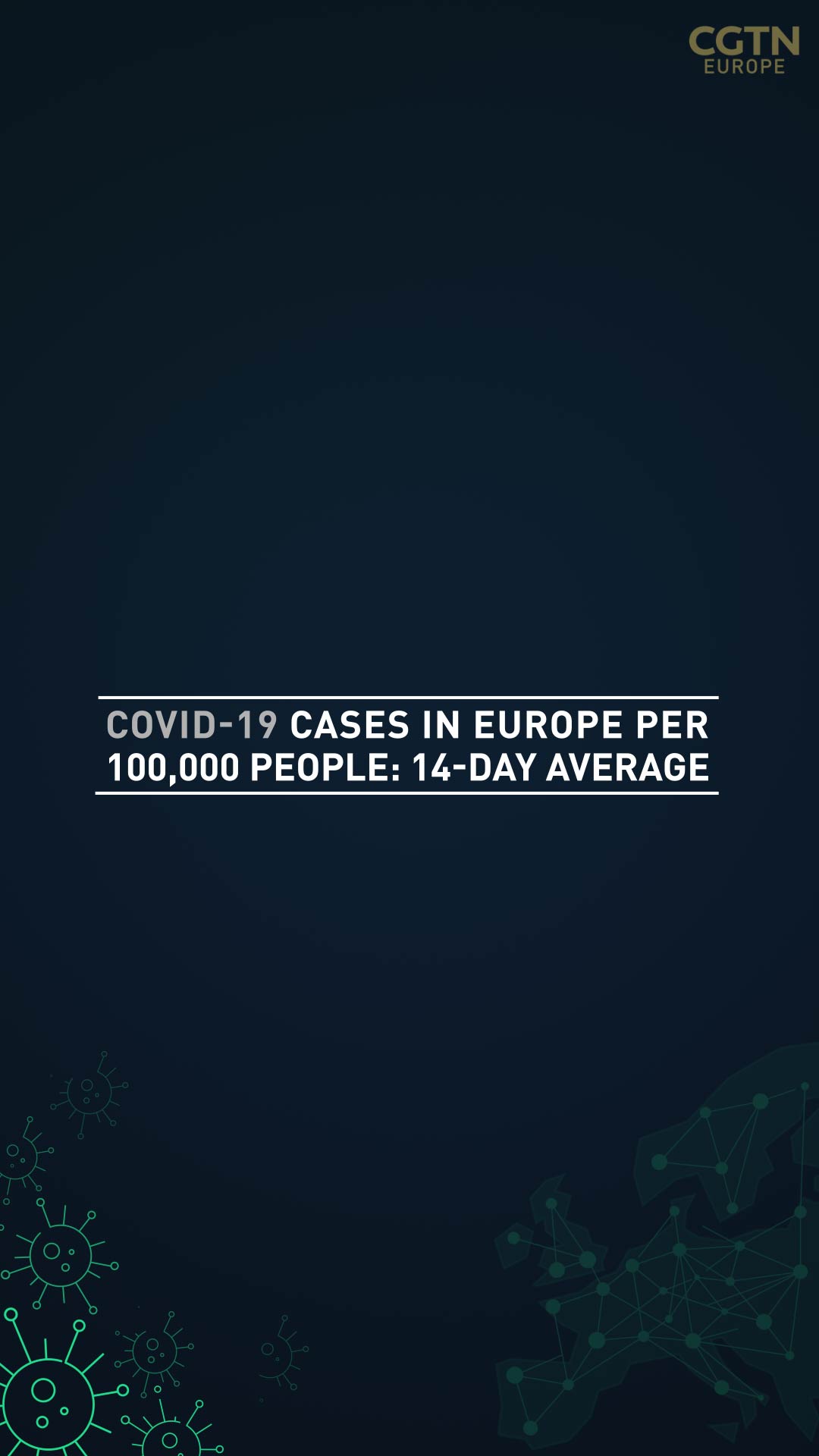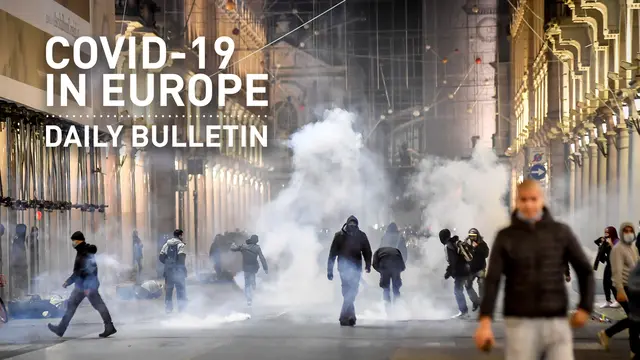
Czechia has implemented a 9 p.m. curfew from Wednesday to slow the spread of the virus. /AP
TOP HEADLINES
-
Violence broke out and luxury stores were vandalized in the Italian cities of Milan and Turin on Monday evening as protests continued against the new restrictions put in place by the government.
-
Portugal's health ministerMarta Temidohas admitted the country's health service is under pressure and hasdescribedthe situation as"grave."
-
Czechia has implemented a 9 p.m. curfew from Wednesday as it attempts to slow the spread of the virus.
-
The****UK cities of Warrington and Nottingham are to be placed in stricter regulations from Tuesday and Thursday respectively as cases surge in the regions.
-
Slovakia has the chance to avoid a complete lockdown by successfully implementing its nationwide testing system , its prime minister Igor Matovic said.
-
Europe is currently well behind in fighting the virus and needs "serious acceleration" in its fight against the pandemic, according to the World Health Organization.
-
Italy's health ministry has advised the country's citizens against journeys to other European nations amid "the worsening epidemiological situation" across the continent.
-
Bulgaria's prime ministerBoykoBorissov has urged the country'scitizensto observe anti-virus measures as he continues hisrecoveryat home after testing positive last week.
-
People in Russia now have to wear face masks in public spaces after the government tightened itsrestrictionson Tuesday amid a rise in cases.
-
Hundredsof protestors gathered in Barcelona on Monday to show their dismayagainstthe new curfewrestrictions implementedin theCataloniaregion.

**CLICK: **
MICROSCOPIC LIFE EMERGING FROM MELTING ICE COULD SHAPE OUR FUTURE
ACROSS EUROPE
Stefan de Vries in Amsterdam
Prime Minister Mark Rutte will give a press conference on Tuesday evening, but sources in The Hague do not expect new restrictions yet. The government would like to monitor the situation for a few more days before taking stricter measures to stop the second wave.
The Albert Schweitzer Hospital in Dordrecht has closed its doors for 24 hours for new coronavirus patients. The board of directors spoke of an "unavoidable choice" because the hospital had reached a "critical point." Other hospitals are almost operating at full capacity.
On Monday, there were 10,353 new cases, a slight increase compared with the days before, with 506 patients in intensive care (up 16 on the previous day). On Monday 26 people who had COVID-19 died – one fewer than Sunday.
Toni Waterman in Brussels
According to reports, doctors in Liege who test positive for COVID-19 but are asymptomatic have been asked to continue working as the Belgian city sees a surge in cases. One in three tests in Liege are now coming back positive and the BBC reports that a quarter of all medical staff are off sick.
Hospitals throughout Belgium have already been forced to cancel non-urgent surgeries and health experts expect half of all the country's COVID-19 ICU beds to be occupied by the end of the week.
More than 28,300 new cases were added to the national tally in the past 24 hours. The country averaged 48 deaths a day in the past week, with hospital admissions up 88 percent in the same timeframe.
00:20

Andrew Wilson in the UK
Research from Imperial College London has found that the body's defences against the coronavirus diminish quite rapidly after infection. The study found that the number of people testing positive for antibodies has fallen by 26 percent between June and September.
About 1,000 patients a day are being admitted to UK hospitals, about a third of the number at the peak. Coronavirus-related deaths however are currently about a fifth of the level in the spring as doctors build experience in dealing more effectively with the disease.
Nearly a million people face tougher lockdown restrictions after it was announced that Nottingham and Warrington would be moved to the highest alert level.
More than seven million people in northern England are now under the strictest restrictions. A group of Conservative MPs has complained to the prime minister about his strategy in the north demanding clarity about an exit route from the measures.
Ross Cullen in Paris
Emmanuel Macron chaired the first of two special 'health defence councils' on Tuesday morning. The French president met top ministers to discuss a possible widening of coronavirus restrictions to include local lockdowns as the situation across the country worsens.
France now has the world's fifth-highest total number of COVID-19 infections. One idea reported to be on the table is to bring forward the curfew that is in place in 12 cities across France which have been classed as being on maximum coronavirus alert. The curfew currently runs from 9 p.m. to 6 a.m. but the government could extend it to start two hours earlier.
The leaders of both houses and the heads of political parties are meeting the prime minister on Tuesday afternoon to discuss the response to the second wave. Overnight, MPs passed a bill on the government's latest economic recovery plan.
Today, we had only two options: either general testing or complete lockdown
- Igor Matovic, Slovakia's Prime Minister

Violence broke out in Milan and Turin on Monday evening as hundreds protested against the newly implemented restrictions. /AP
FROM OUR GLOBAL COLLEAGUES
**CGTN Europe special: **
Redesigning the Future
CGTN China:
Chinese mainland reports 50 new asymptomatic COVID-19 cases
CGTN America:
U.S. COVID-19 cases at record highs, rising hospitalizations and deaths
CGTN Africa:
Tunisia faces saturation of hospital beds amid rapid increase in cases
Sign up
here
to get the COVID-19 Europe bulletin sent directly to your inbox
CGTN Europe has been providing in-depth coverage of the novel coronavirus story as it has unfolded.
Here
you can read the essential information about the crisis.
 简体中文
简体中文

